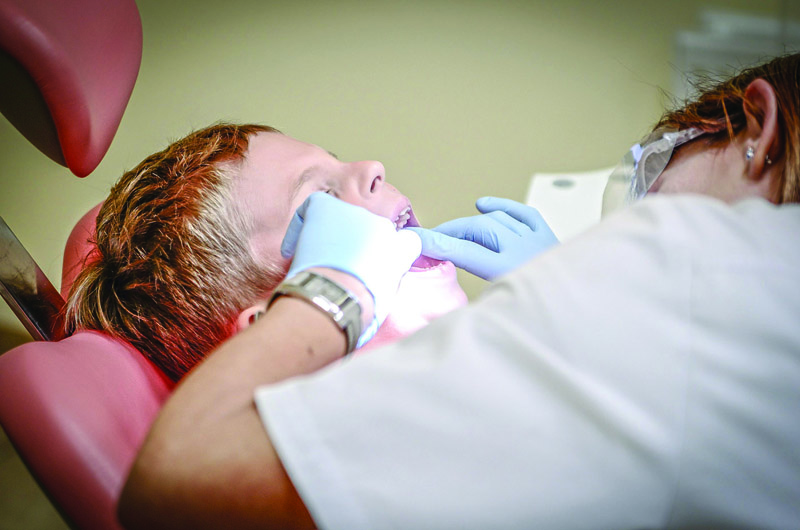By Ben Garcia
Are you brushing your teeth regularly? How many times daily? Why is it necessary for children to visit a dentist? These questions and more were answered by Dr Sumant Mishra, Pediatric Dentist at the Ministry of Health, during an interview with Kuwait Times. Dr Mishra said oral dental hygiene is as important as other health issues.
"You have to care about dental and oral hygiene because it affects you as a human and your ability to eat and speak properly. It also affects your poise and confidence, and that is why we advise parents to address the issue of dental hygiene of children as early as six months old," he said. But children's teeth at this age are not permanent, so why the fuss?
"Because we want our kids to learn the importance of dental hygiene and inculcate it in their subconscious. Normally, baby teeth start to appear when they are between six months to almost a year old. Even at the age of three months, you'll notice babies are exploring by their mouths, and this is the right time for parents to intervene slowly by giving them safe teething tools. Sometimes if they are teething, babies feel discomfort. A soft baby toothbrush can stimulate their minds and massage their gums. Cotton fabric and biscuits help too," Mishra said.
"If you train them early, they will definitely make brushing a regular habit and you will never have problems of tooth pain, abscess or swelling, and won't need a root canal or other surgeries. I want to reiterate the importance of dental and oral hygiene. We need it more than anything else for our lives to be great every day. We need to brush our teeth every time we eat, but two times daily is ideal," he said. He said children should visit their dentists every three months, while adults should do so at least twice a year.
Dr Mishra is a dedicated Indian pediatric dental doctor at Bnied Al-Gar Specialized Dental Clinic and Amiri Hospital. His early years as a dentist were spent in India and Europe, before he came to Kuwait at the invitation of the ministry of health in 2009. "I became interested in the care of children because I believe they are most important component of the society and are the future of any society. When we are treating a child, we are not just treating their teeth. We are treating them psychologically and are indirectly communicating with the child and their parents, giving them hope that they will be okay," he said.
"I treat children like I want my kids to be treated - with compassion and empathy and following all infection, health, safety and hygiene protocols. The child walks inside the dental center crying, but walks out smiling. How immensely satisfying this is for a dentist," Mishra told Kuwait Times.
One of his many passions is to serve various communities of expats in Kuwait through social work and dental camps, and sharing his expertise through seminars and workshops. "Apart from my regular job at Amiri Hospital, I've been doing lots of charity work for various community organizations here in Kuwait. Before the pandemic, I was also invited to schools. Now I hold virtual events," he said.
"I have helped the Nepali, Bangladeshi, Egyptian, Sri Lankan, Filipino, Palestinian and Pakistani communities in Kuwait. Most of the time I do it for free. I have even been invited outside Kuwait to conduct dental camps and seminars, for example, when I went to Nepal. I am often invited by Kuwait TV's English channel to talk about dental care, especially for kids. My belief is that if you care for others, God will take care of the rest, and when you share, your rewards will multiply hundredfold," Dr Mishra said.
A native of Chhapra in India's Bihar state, Mishra completed his bachelor's degree in dental surgery from the University of New Delhi as a gold medalist. He then worked at North Cumbria NHS Trust in Scotland. He did his master's in clinical pediatric dentistry from Queen Mary's University in London and obtained a postgraduate certificate from Finland's University of Helsinki with honors.











